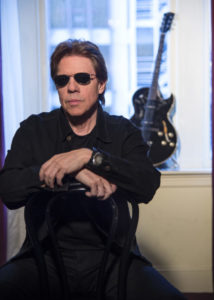 In a more than 40-year career, guitar legend George Thorogood has seemingly done it all – been bad to the bone, moved it on over, and done not only the Madison Blues but the Delaware Slide as well. Now he’s navigating new, somewhat unfamiliar territory – he’s going solo with the release of his 16th solo album, Party of One.
In a more than 40-year career, guitar legend George Thorogood has seemingly done it all – been bad to the bone, moved it on over, and done not only the Madison Blues but the Delaware Slide as well. Now he’s navigating new, somewhat unfamiliar territory – he’s going solo with the release of his 16th solo album, Party of One.
Elmore writer Ira Kantor had a one-on-one with George Thorogood, and, along with suggesting we change the name of our publication to George and insisting Kantor listen to Elmore James’ “Something Inside Me” (“You will never find a greater blues song than this.”), post-interview. Thorogood talked about his musical journey, his return to Rounder Records, and how his new album almost never saw the light of day:
Elmore Magazine: Hi George, how are you today?
George Thorogood: Bad to the bone.
EM: Why did you feel now was the opportune time to go solo, 40 years into your career?
GT: [There were] many reasons for it. First of all, we needed to put out a new product. I hadn’t put a record in six years. That’s a little too long if you want to sustain any kind of profile in this industry. That was about the only thing left I hadn’t done before. How many Chuck Berry covers can you do, or bad ass blues drinking songs can you do? And there was a demand for it for fans of Rounder Records. They kind of had a table offer of, ‘When you get ready to do this, we’ll be ready to record you and put it out.’ I said, well everybody else has put out an acoustic solo record just about – like Eric Clapton and people like that. They used to call it “Unplugged,” you remember? So, I figure since I haven’t written “Rock ‘N’ Me, Baby” or “Jumpin’ Jack Flash” lately (laughs) I have to put out something. So this is it.
EM: Was it a big emotional adjustment transitioning from an electric guitar background to a more acoustic-based record?
GT: Well when I first played I was playing acoustic. Everybody picks up an acoustic guitar when they start. Bob Dylan did, the Byrds, the Mamas and the Papas, Canned Heat – everybody starts out on acoustic guitar and then you take it only so far. The demand is then for rock music, rock bands. Why do you think Dylan went electric, you know? Because he knew that’s where it was at. So, my acoustic career, if I had one, lasted very few months and I had too many people advising me around me just saying, ‘Why don’t you get an electric guitar and get a bass and a drummer?’ It didn’t really take off and that’s what I did.
When I picked up that electric guitar for the first time and played with Jeff Simon I said, ‘I am home.’ I had found my home when I got the trio going and I started to boogie like Bo Diddley and John Lee Hooker, which is really what I’m all about anybody. It was pretty awkward performing live [acoustically]. I could get through maybe two songs and that was about it. To do a whole show was too difficult for me to do. There’s only one Taj Mahal, there’s only one John Hammond who can do that. Joni Mitchell could do it because she writes all those great songs. But I’m not that person, so when I picked up that electric guitar I said now I’ve found myself, I’m home now.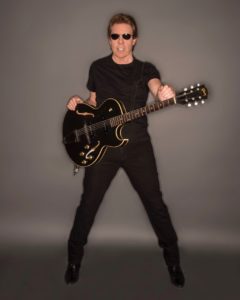
EM: Was there any specific mindset behind how the songs were chosen for this album?
GT: Those are the people I grew up listening to: Bob Dylan; I did a week of performing with Sonny Terry and Brownie McGhee and a few others. Once we got into the record, I said well let’s try to get a song by each one of these individuals who in some way or another influenced me, inspired me or I learned to do this, whatever. A lot of the songs were also advised by producer Jim Gaines, and of course by Rounder Records. It wasn’t as easy as people would think; to squeeze 13 songs out of me playing alone. It took me a couple of years to do it.
I did some for a while and then I took a break and went out with the band, recorded a couple of things on the road and then went back home, rested for a while, went back out and did some shows. So, it was kind of a project. It wasn’t something I could knock out in one week. I had to think about it for a while.
There was a particular time when I got about a third of the way, almost halfway through it and I was almost ready to ditch the whole project saying, ‘I can’t do this.’ As much as people think, ‘Oh sure he can;’ I said, ‘Yeah, I can do it but will it be any good?’ There’s a difference between putting out a product and saying, ‘I can do it,’ and then saying, ‘But can I put out something that’s good?’ Why put out something that’s lousy, right?
I said, this is all I’ve got. It’s the best that I can possibly do. Trust me, I’m not dragging my feet on this project; I’m running as fast as I can to make this work for you. But then it was up to (Rounder) to listen to it and say, yeah, we’re really knocked out by it. Rounder’s standards are very high, they always have been. That’s why they’ve lasted all these years. It’s not easy to make a record for Rounder Records, let me tell you – not like people think. It’s not like they’re not good people or anything; it’s just that they have a standard of quality that they stand behind and that’s their reputation. And I respected that. I said if I can’t do it to Thorogood’s level and Rounder’s level then we’re not going to do it at all.
EM: You’ve stuck to your musical guns for 40 years. Describe to me why it’s so important to keep the blues alive in the era of modern music.
GT: I want to clear that up once and for all. Some people in past management used to say that and I’ve done interviews where they’ve said, ‘George stuck to his guns’ and he stayed with this. No, I didn’t stick to that music; that music stuck to me. You don’t think along the way if I could’ve put out a monster hit like “Every Breath You Take” by Sting I wouldn’t have done it? Of course, I would have. (laughs) If I could have put out “Abracadabra” or some monster hit like that I would’ve done it. But I tried, it didn’t happen. So, this is what I can do best. I stuck with it for that reason. It’s like a home run hitter that says, ‘Oh I can hit the ball over the fence but I choose not to, I’m going to bunt.’ It doesn’t work that way.
It wasn’t a matter of sticking to my guns, let me tell you. It was a matter of saying, this is what Thorogood can do. There’s a million other artists out there – there’s certain comedy stars that would love to do serious drama and then there’s great character actors that would love to do comedy. I’m not unlike that. If I had a repertoire like Steve Miller, I’d be on cloud nine, you know what I mean – have it made! (laughs)
My integrity lies in saying, ‘Do what you do best, George.’ That way you’re being honest. Don’t go out there and ditch “Bourbon, Scotch and Beer,” ditch “Bad to the Bone” and write some highfalutin song that stinks that nobody wants to hear. My integrity is, no, what got you here is going to keep you here and if you get a bigger hit that promotes you in a bigger way then that’s a bonus. But to be where I’m at, I’m more than fortunate – thrilled about it. But don’t get the wrong idea that I just turned down opportunities or songs. In 1980 if John Fogerty walked into my studio and said, ‘I just wrote a song for you, it’s a big hit,’ don’t you think I would have recorded it? (laughs)
EM: Describe to me what it’s like coming back to Rounder Records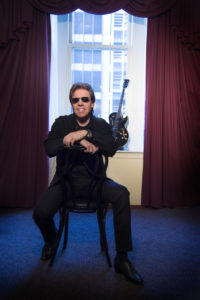
GT: When we were going there, I was just getting started and really didn’t truly understand what Rounder was about. I thought all labels were pretty much the same. Their label was more on bluegrass, old-timey music, a little bit of blues and their thing was – you know how people shoot films, like documentaries? Well that’s the kind of label they were. They would find someone like an Appalachian folk singer who sings acapella. I think they recorded a string musician from Atlanta who played nothing but the tambourine and they recorded her. They were more of a documentary label than a commercial label like Capricorn or Elektra/Asylum or someone like that. But they were the only one that showed any kind of interest in me so I really punched hard to get with them.
They were already pretty much well established in their own write at that point. I was not. So, I needed this break badly which they gave me that opportunity. Now it thrills me that not so much the Destroyers have survived and done well, but Rounder’s a big deal now; they’re a heavy hitter. And if you want to talk about somebody sticking to their guns, you should talk to them not me, OK.
EM: Once this record comes out, what’s next for you?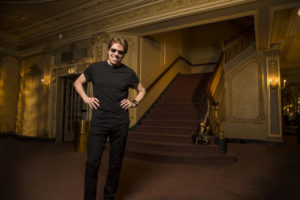
GT: All the usual stuff, you know. Making a record with Paul McCartney, and playing slide guitar behind Bob Dylan, and doing a reggae record with Keith Richards. You know, usual stuff like that. (laughs) Well, a fella can dream, can’t he?
-Ira Kantor


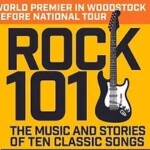
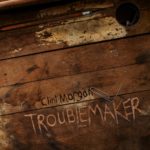



Be the first to comment!